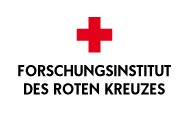ePractice workshop: "Understanding the role of ICT in the integration of IEM
Created by:Boussios TiliaEvent Location:Brussels, Belgium
Start Date:23/11/2010
End Date:23/11/2010
URL:http://www.epractice.eu/en/events/2010-immigrant-and-ethnic-minorities-ict
Nov , 23 2010 - Nov , 23 2010
he European Commission is pleased to announce the organisation of the workshop on Understanding the role of ICT in the integration of Immigrant and Ethnic Minorities (IEM), on November 23rd, 2010, in Brussels, which aims to encourage the sharing of good practices and research studies in the area of ICT-enabled or supported IEM participation in lifelong learning, improved employability and social integration.
The theme of this workshop is on the cross road of different key priorities of the Europe 2020 policy:
- To promote digital inclusion and empowerment of all European citizens, especially through actions in support of digital and media literacy/skilling for employability, learning, creating, participating , being confident and discerning in the use of digital media (Flagship initiative: Digital Agenda for Europe);
- To support migrants better integration in the workforce (Flagship initiative: European Platform against Poverty);
- To modernise labour markets by facilitating labour mobility and the development of skills throughout the lifecycle with a view to increase labour participation and better match labour supply and demand (Flagship initiative: An agenda for new skills and jobs);
- To promote the recognition of non-formal and informal learning (Flagship initiative: Youth on the Move).
Besides, it is also in line with the objectives of the Stockholm Programme on Integration, which aims to provide modules on three topics: 1) introductory courses including language classes; 2) strong commitment by the host community; and 3) active participation of immigrants in all aspects of collective life.
Recent research has shown the importance of ICT (among which social computing applications seems to play a specifically important role) in the process of enabling the socio-economic integration of IEM people and fostering cultural diversity in our European knowledge societies. Different types of integration where ICT play a role can be distinguished, as top-down and mediated integration, which relies upon online welcoming and integration services provided by public or third sector social organisations which are increasingly taking advantage of ICT to facilitate the integration of IEM; or bottom-up integration, which relies on informal hospitality and is directly linked to social networking processes between migrants and members of the host society. But there is still little evidence on the digital patterns of IEM people, their digital competences, ICT access and use, and how they are benefiting from ICT-enabled or supported initiatives to increase their autonomy, integration and contribution to the development of their hosting societies.
0 comment(s) posted

